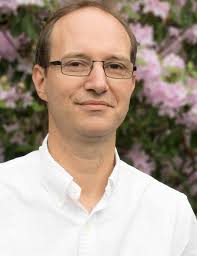Study explores impact of RAS on salmon

THE impact of recirculation aquaculture systems (RAS) on salmon smolts is to be investigated by a consortium led by Stirling University’s Institute of Aquaculture (IoA).
The £2 million Robust-Smolt study – involving 14 institutions and organisations – will compare the robustness and susceptibility of RAS reared Atlantic salmon to pathogens.
Over the next three years, the research, backed by leading salmon farmers, will aim to provide new knowledge and scientific tools to monitor and enhance farming practices.
The IoA’s Professor Herve Migaud, principal investigator on the project, said: ‘The rapid global expansion of the salmon industry has been made possible through the adoption of new farming technologies – including contained systems such as RAS – and husbandry regimes.
‘These systems have clear advantages over land-based flow through and freshwater loch systems, and young salmon produced in RAS under manipulated regimes – such as constant temperature and light – reach larger sizes and can be transferred to sea water earlier than ever before.
‘However, our knowledge of the impacts these new rearing systems have on salmon physiology is very limited.’
Both Mowi and Scottish Sea Farms, which are part of the consortium, have invested recently in new RAS hatcheries, growing larger smolts on land before transferring them to sea pens.
Migaud said: ‘The impact of differing microbiota, water chemistry, altered photo-thermal regimes on fish disease resistance at sea, immune function and microbiome have not been characterised and these may explain the variable performance observed in farmed stocks.’
As well as Mowi and Scottish Sea Farms, the consortium includes the Scottish Salmon Company, Cooke Aquaculture Scotland and Grieg Seafood; the universities of Aberdeen, Exeter and Edinburgh; the Centre for Environment Fisheries and Aquaculture Science (Cefas); feed company BioMar; Pharmaq; the Scottish Aquaculture Innovation Centre (SAIC); and the Scottish Salmon Producers’ Organisation.
‘This project is ambitious, innovative and collaborative, with a great team of internationally renowned academics leading in their respective research areas and world leading industrial partners involved in salmon farming,’ Migaud added.
‘It is a great pleasure to lead such a great team and contribute to deliver top science with direct impact.’
The study is funded by the Biotechnology and Biological Sciences Research Council and the Natural Environment Research Council under the UK Aquaculture Initiative, and SAIC.
Picture: Professor Herve Migaud

